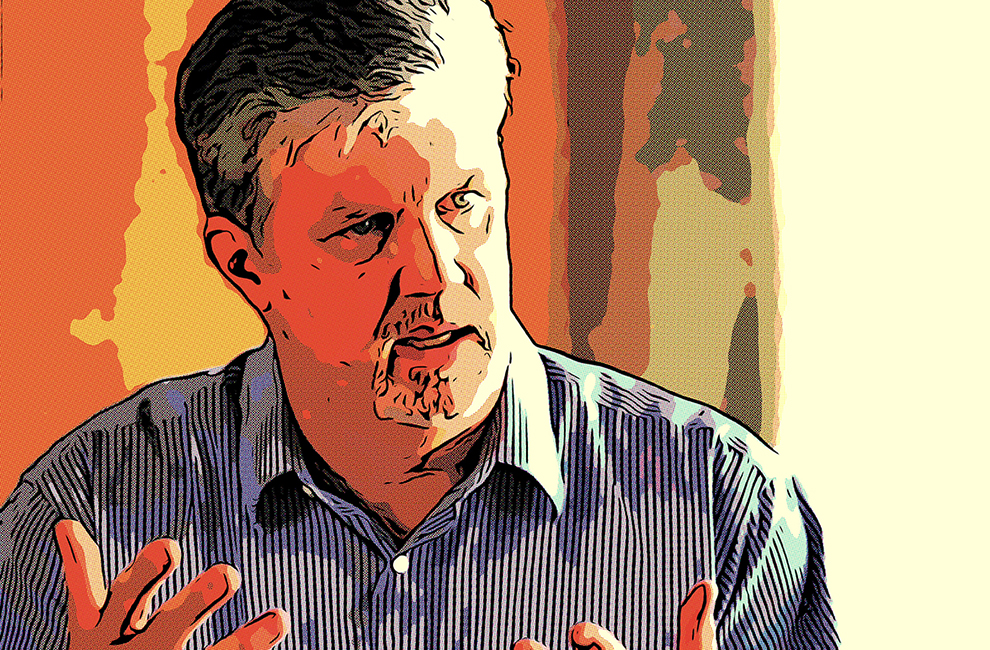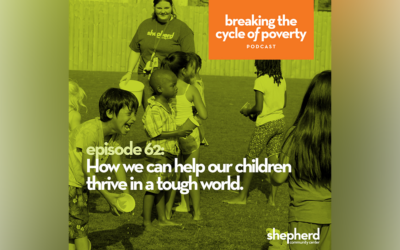For more than a quarter of a century, Tim Streett has worked to alleviate poverty in Indianapolis through a mix of hands-on, practical ministry and deep research into the forces that keep people trapped in a cycle of scarcity and dependence.
Streett is the intellectual driver of Shepherd Community’s Poverty 101 course as well as the primary developer of the ministry’s list of 10 assets a person needs to break free of poverty.
Streett noted that Shepherd’s approach to reducing poverty is built around building and maintaining relationships. In Poverty 101, Streett helps those taking the class to better understand the experiences of people living in poverty. They also are encouraged to think about their own assumptions.
“Part of the great feedback we get on Poverty 101 is, ‘This class didn’t just teach me about who they are,’ ” Street said. “ ’It taught me about who I am.’ If we are going to establish relationships, that’s really important.”
Streett, who recently completed a doctorate at Bellarmine University, was the founder of Jireh Sports, a near Eastside ministry that leveraged mentoring and sports to build into the lives of children and teens. In 2008, Jireh merged with Shepherd, where Streett now serves as assistant director.
“I affectionally call Tim the ‘professor’ because he’s a master teacher,’’ Shepherd Executive Director Jay Height said. “I think what’s most important is his life experience. I’m proud to say he’s a colleague.”
Street’s journey into urban ministry is rooted in a childhood tragedy. One night in the winter of 1978, Streett was shoveling snow with his father, a chaplain in the Army, when they were robbed at gunpoint.
Streett’s father was shot to death during the robbery. Tim Streett, only 15 at the time, witnessed the murder.
“God used a number of experiences over the next 15 to 20 years to call me to ministry in the city and to racial reconciliation — the three men who participated in the robbery that night we all black and were from the inner city.” Streett said. “God eventually led me to go to the prison to visit two of the men and to forgive them. And one of them became a good friend. God used that experience and so many others to place his stamp on me to do ministry in the city and ministry with people in poverty.”
As an educator and ministry lead who helps volunteers, business leaders, pastors and others learn about the realities of poverty in the United States, Streett said that the biggest misconception people have is that poverty is caused by a lack of money.
“There are so many things that people who grow up in generational poverty lack that people who group up in the middle class possess,” Streett said. “If we think of poverty as a lack of money, then it’s an easy fix. We simply give people money. And that in fact is what a lot of the government’s work in alleviating poverty is about. We have been waging the official War on Poverty for nearly 60 years, and we really haven’t made a big dent.”
Streett said a second misconception is that poverty is primarily a problem that involves ethnic and racial minorities.
“I remember a conversation I had where I explained to a man that there are more white people than Black people on public assistance,” Streett said. “He refused to believe that. I even showed him the statistics, and he refused to believe that the statistics on a government website were true. Poverty is colorblind. It affects all races.”
Streett said much of Shepherd’s work to help people leave behind poverty focuses on achieving and sustaining stability and not primarily on increasing income.
“Income is a lagging indicator of stability,” Streett said. “Income doesn’t produce stability; it’s the other way around. Stability ultimately ends up producing more income.”




